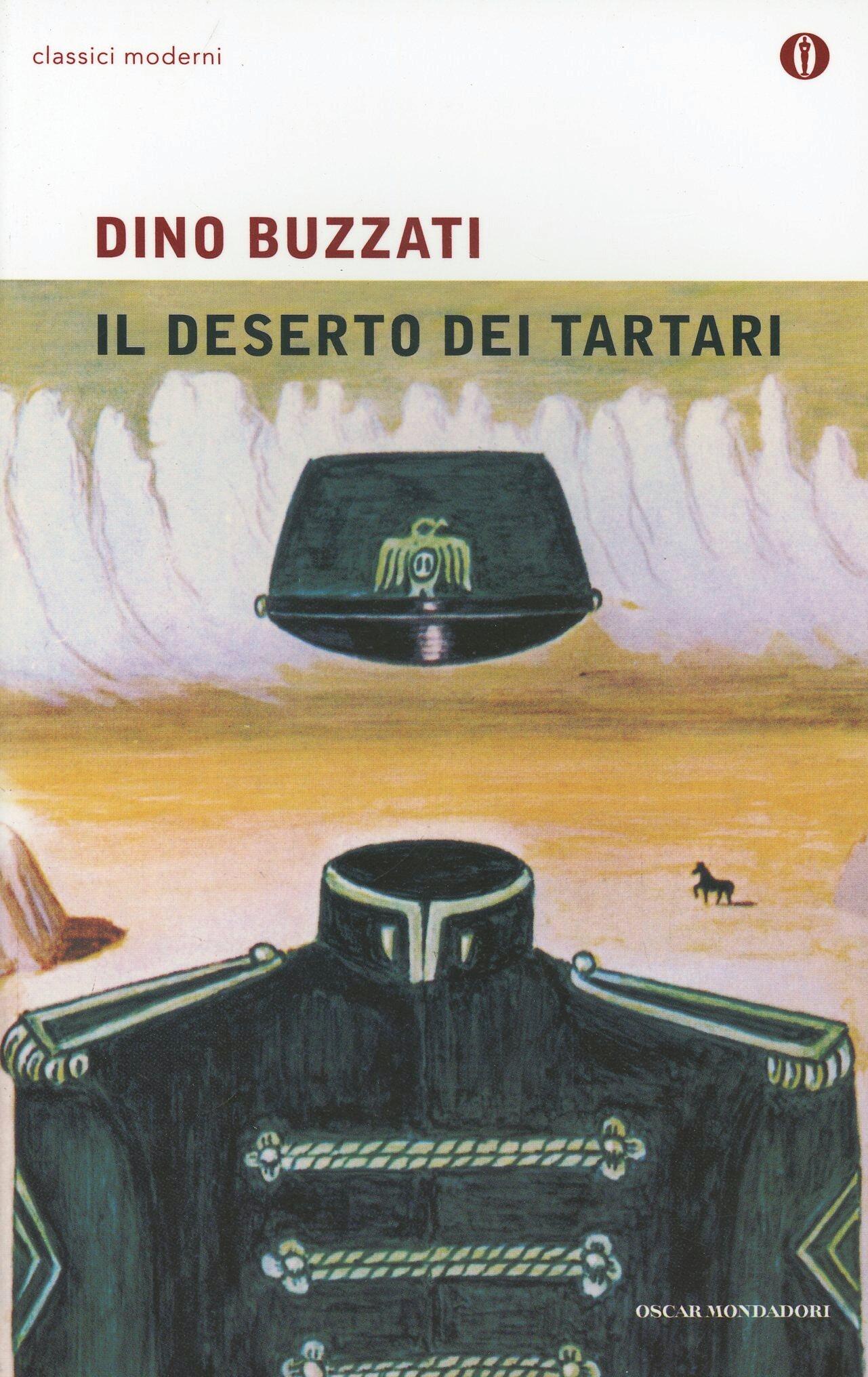This is my contribution to the 1940 club, graciously hosted by Simon and Karen at Stuck in a Book and Bookish Ramblings, respectively. This is my sixth or seventh time participating, and it is good fun seeing what other books people have read and reviewed. Go to their pages and have a look!
Life consists of waiting. Waiting in vain, perhaps, as Robert Marley wrote. Italian writer Dino Buzzati noticed this and it inspired him to write this novel, his most well-known work, published in 1940.
Buzzati got the idea for the novel when he saw friends, colleagues, acquaintances just waiting for things to happen. Sometimes these unnamed “things” did happen, most times they didn’t. This, it seemed to Buzzati, was a fact of life. A fact he wanted to describe in a work of fiction. It also indirectly comments on the balance between settling and ambition in life. He seems to comment on life expectations. Are we being conditioned to expect too much out of life? Is the freedom that comes with modernity ultimately empty? Is that what existentialism was about? Buzzati, and this novel in particular, is sometimes mentioned as an example of existentialism. But what is it about?
Giovanni Drogo is a young soldier, on his way to be stationed at a remote fortress, at the edges of an unnamed Empire. This fort, Bastiani, is supposed to be a waystation where he just will stay for a few months, before an awaited transfer to the city. But somehow, as a simile for life changes unrealised, Drogo stays for longer than the four months. He ends up staying for 30 years, spending the better part of his adult life in the fort, waiting.
The book is a meditation on life and meaning, on wasting time and considering opportunities. On routine and the ultimate purpose of our lives. It is a reminder that we often make choices as if we will live forever. It can be seen as a wake up call to take advantage of our short time of earth. If that’s not existential, I don’t know what is.
This book was recommended by Nicholas Nassim Taleb, and he said it was his favorite book for a long time. It’s one of those books that I think one must get to at a young age to really be taken by. For me, on this theme, it was probably Camus that took up that space. Another French book with a similar theme, published in 1951, is Julien Gracq‘s The Opposing Shore. It is also about warring states, even though no battle has taken place for over 300 years. The notion of the “barbarians at the gates” is an evergreen theme, but Buzzati is said to have been inspired by Constantin Cavafy‘s 1904 poem Waiting for the Barbarians. That title also resurfaced in J.M. Coetzee‘s 1981 novel, reportedly inspired by Buzzati.
The waiting aspect of this book has been compared to Vladimir and Estragon’s anticipatory loafing in Beckett‘s classic. And for some reason it is also said to be similar to Kafka, which I don’t agree with. One reviewer saw similarities with John William‘s Stoner, because both are books in which nothing happens (which was also said about TV show Seinfeld, incidentally).
Buzzati seems to say that life is waiting, but life is also a train journey (Radu Mihaileanu). Life is a sea voyage (Joseph Conrad), life is hugging the shore (John Updike), and life is a lane switch (Kendrick Lamar). Life might be an overtake on the motorway (Rodolfo Sonego).



Never heard of this but your review has made me put it on my wishlist.
LikeLike
Thanks for leaving a comment! I’m happy to hear that my review added to your wishlist! I think it’s definitely worth a read, but more for the overall theme than the actual prose.
LikeLike